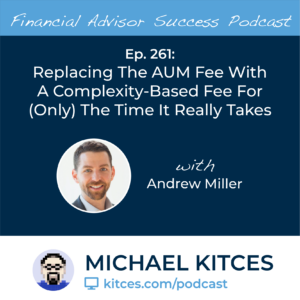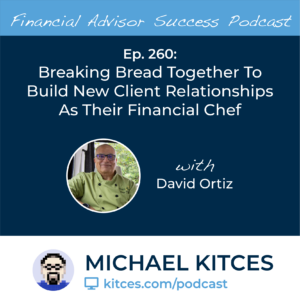Much of a financial advisor’s work involves putting themselves out there, whether by pitching their services to a client, writing engaging pitches on their website, or promoting their own educational or written work. For many advisors, though, marketing themselves may initially feel intimidating, but the process becomes less daunting as they find success and get more experience under their belts. For many advisors, diving into new experiences may elicit feelings of “imposter syndrome” – a sense of self-doubt around one’s abilities to the extent that they may feel like a fraud – that are never actually eliminated regardless of their level of subject matter expertise or how long their track record of success gets.
In our 76th episode of Kitces & Carl, Michael Kitces and client communication expert Carl Richards discuss their own experiences with imposter syndrome and how they – and other advisors – have successfully dealt with it.
Advisors who struggle with imposter syndrome tend to have trouble internalizing their own capabilities, despite external evidence of their success. And rather than building confidence upon their successes, advisors often find it even harder to acknowledge their skill as they accumulate successes, because they develop the sense that there is simply a further distance for them to fall. Which can present a significant trial to advisors as they progress in their career, as while some uncertainty and feelings of “I don’t know what I’m doing” are normal when first starting out (or trying something for the first time!), when those feelings are continual, they can pose a challenge for advisors to do the things that will help improve their circumstances or represent their skills adequately – such as by asking for a fair fee or promoting their educational content.
Fortunately, there are ways for advisors to mitigate – and even leverage – the effects of imposter syndrome. By first recognizing that imposter syndrome is a very common experience and acknowledging that it can often present opportunities for advisors to stretch and improve themselves, advisors can devise productive strategies to help them effectively cope with their self-doubt. For example, one advisor who had trouble assertively discussing her fees wrote up a detailed script that she pulled up and read when having the conversation with clients, to keep any unfounded reservations about her value as an advisor from discounting her services.
Ultimately, the key point is that imposter syndrome is deep-rooted and challenging for many advisors, but developing coping mechanisms and leveraging the challenges that are presented to advisors can help them advance themselves and elevate the value they offer to clients. Because the advisor who can look back and realize how far they’ve come can increase their confidence over time – and genuinely embrace their expertise!

 Welcome back to the 261st episode of the Financial Advisor Success Podcast!
Welcome back to the 261st episode of the Financial Advisor Success Podcast! Welcome back to the 260th episode of the Financial Advisor Success Podcast!
Welcome back to the 260th episode of the Financial Advisor Success Podcast!
